(October 12, 2022) The eminent contemporary Indian author of British descent, Ruskin Bond is one of India’s most-loved authors. The 88-year-old has been prolific for decades, writing mainly for children but also for adults. For his illustrious work in literature, he has been awarded the Sahitya Akademi award (1992), Padma Shri (1999) and Padma Bhushan (2014). Many of this celebrated author’s works are part of Indian school curriculum. Generations have grown up reading his books.
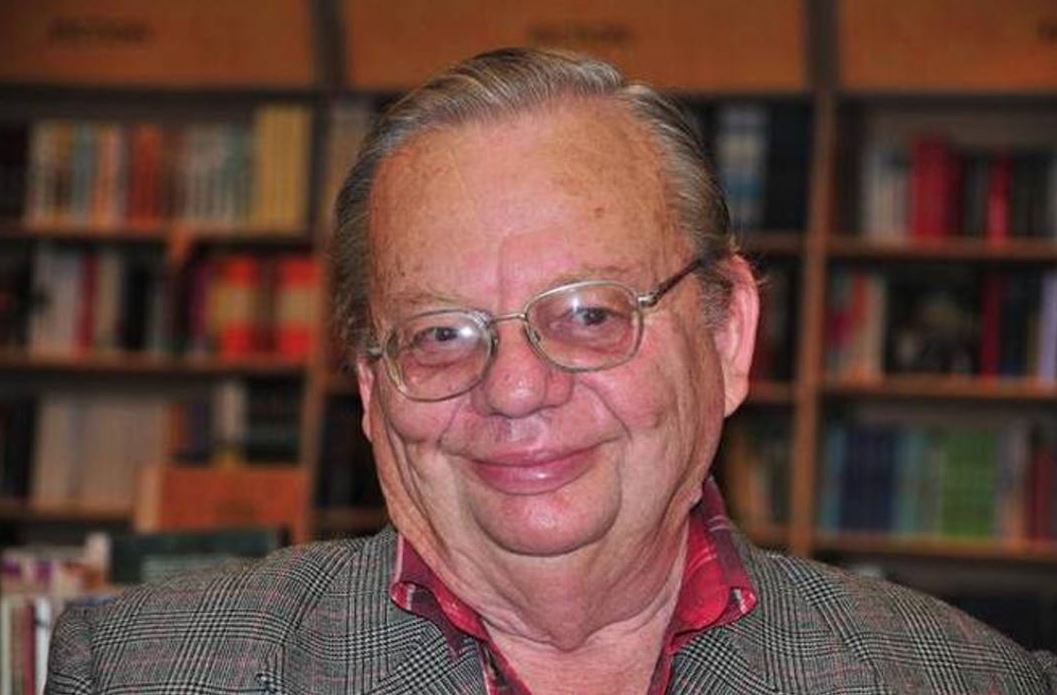
Ruskin Bond, one of the most loved authors of India
In his latest work, A Little Book of India: Celebrating 75 years of Independence, the acclaimed author pays homage to the country that has been his home. In the books introduction, he writes:
I have dwelt on the highlights of the last 75 years of India’s progress to maturity as a nation. It is a record of some of my memories and impressions of this unique land — of its rivers and forests, literature and culture, sights, sounds and colours — an amalgamation of the physical and spiritual.
Born in 1934, in Kasauli, British India, Ruskin Bond is the son of an Anglo-Indian mother, Aubrey Bond, and British father, Edith Clarke, who taught English to the princesses of Jamnagar Palace. Ruskin and his sister Ellen lived there till he was six. Later, his father joined the Royal Air Force, and little Ruskin got an opportunity to travel to different places soaking in the diversity of people and their behaviours.
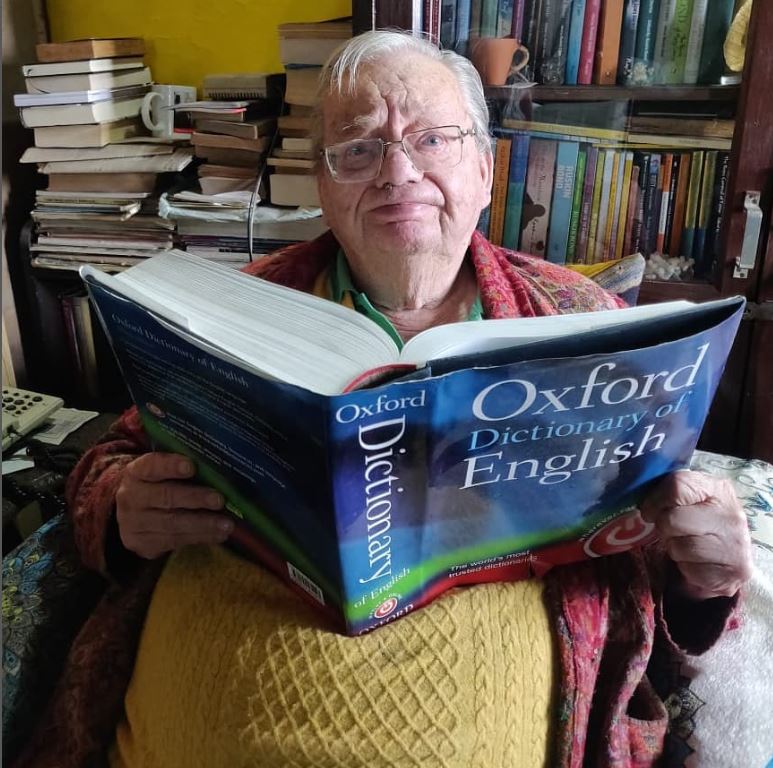
Ruskin Bond calls the dictionary his favourite book
Huge impact of personal experiences
Unhappy experiences at an early age had a deep impact on the author. He was just eight when his parents separated and his mother left him to marry someone else. In the absence of love from his mother, he became emotionally distant from her and this resulted in a very complex mother-son relationship. However, his father’s undivided attention helped him grow as a mindful child.
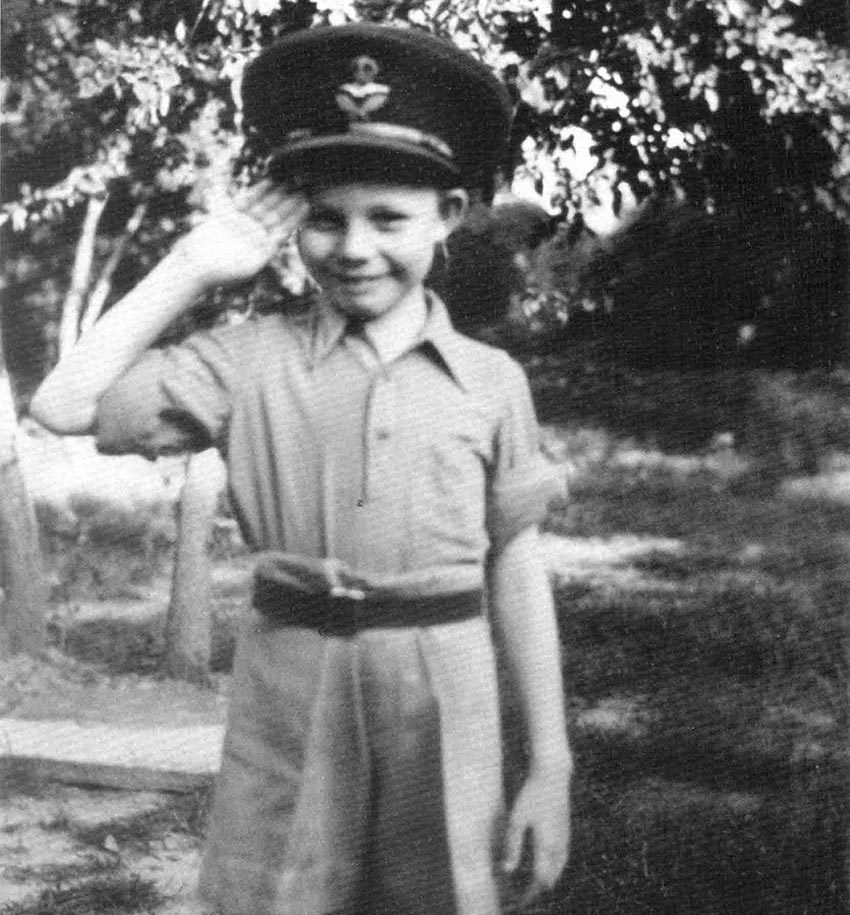
Little Ruskin Bond
Little Ruskin faced another tragedy with the untimely demise of his father in a war. Heartbroken, the 10-year-old moved to Dehradun to be with his mother, step father and grandmother. He was sent to Bishop Cotton School, Shimla from where he passed out in 1951. That year, he wrote one of his first short stories, ‘Untouchable’. Ruskin won several writing competitions in school, including the Hailey Literature Prize and the Irwin Divinity Prize. In 1952, he moved to England and stayed with his aunt for four years.
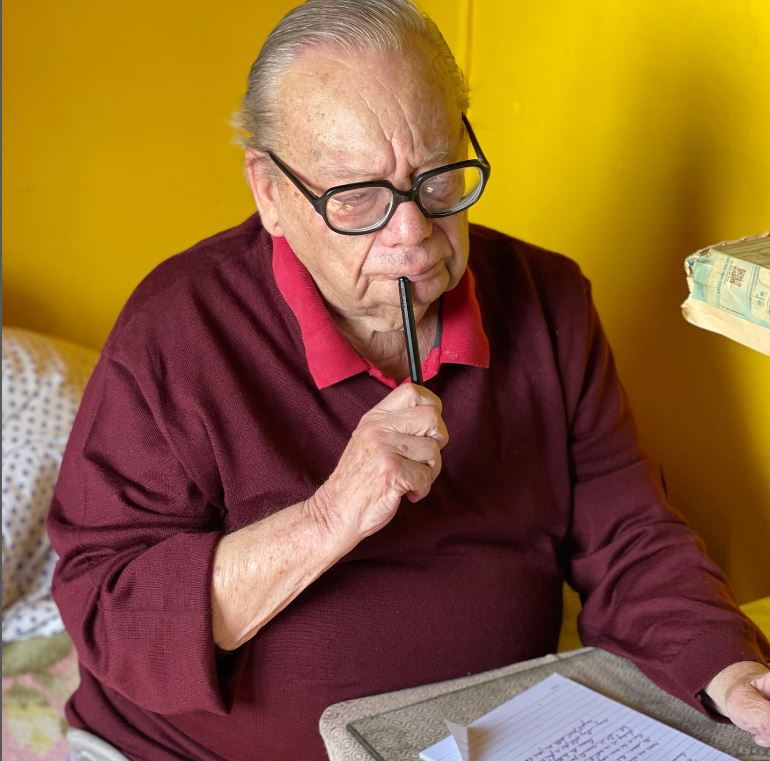
Busy at work
Ruskin learned to cope with his difficult childhood by expressing himself on paper. He was also a voracious reader, a habit inculcated in him by his father. However, despite a lonely childhood, he grew up to be an optimistic human being, which is evident in all his works. Since writing came naturally to him, he became an earnest writer just as his father had hoped.
Life in London
It was in London that Ruskin began writing his first novel, ‘The Room on the Roof’. It is about the life of Rusty, an orphaned Anglo-Indian teenager, a character inspired by his own life. He poured his heart out in the novel, portraying distinct experiences of his life, like living in a small rented room on the roof in a house in Dehradun. It was published in 1956. It fetched Ruskin the John Llewellyn Rhys Memorial prize (meant for British Commonwealth writers under 30) in 1957. Basking in his newfound success, he wrote its sequel, ‘Vagrants in the Valley’. Apart from writing he did several other odd jobs to make a living in London.
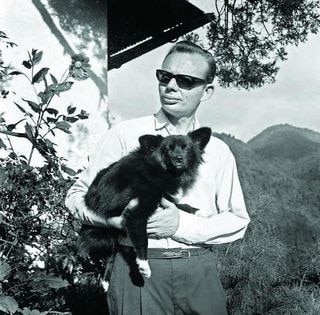
Ruskin Bond in his youth
Back to where heart belonged
The yearning for India was too strong. At the end of his four-year stay, Ruskin returned to India and worked as a journalist in Delhi and Dehradun for some years. Later, he relocated to Mussoorie in 1963, a town in the foothills of Himalayas, working as a freelance writer for The Pioneer, The Leader, The Tribune and The Telegraph. Gradually he shifted his focus to short stories, essays, novels, memoirs and poems.
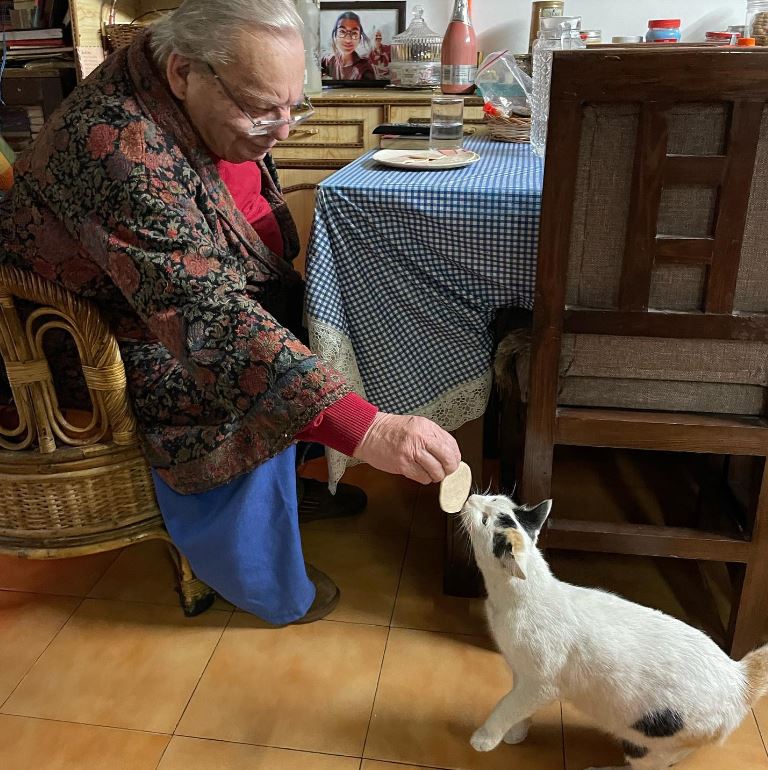
Ruskin Bond with his cat Cleopatra
In the 1980s Penguin established its operations in India and approached him to write books. There was no looking back for the author after that, who became known for stories that were simple but immensely powerful.
Such is the best-selling author’s love for writing that in one of his interviews he said:
If I were not a professional writer who was getting published, I would still write.
Connection between India and Ruskin Bond
In his essay, ”Scenes from a Writer’s Life”, Ruskin has emphasized his Indian identity, “Race did not make me one (an Indian). Religion did not make me one. But history did. And in the long run, it’s history that counts.”
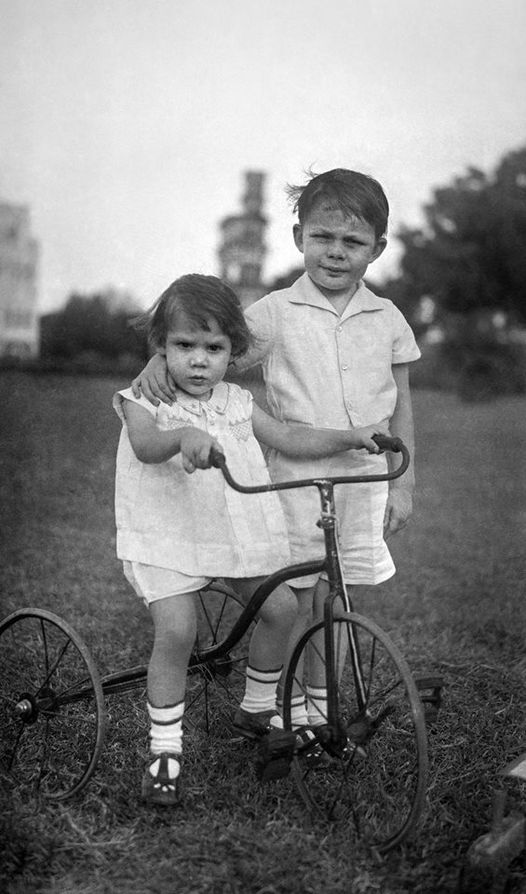
Ruskin Bond in his childhood with his sister Elle
Since 1963 Ruskin Bond has been staying in Mussoorie with his adopted family. His sister Elle who lived in Ludhiana is no more. Life and works of Ruskin Bond are deeply revered by people of the country.
The Global Indian said in an interview:
I do not know what happens when one dies. I will want to be reborn in India and nowhere else and be a writer.
Rich body of work
Ruskin Bond has written more than five hundred short stories, essays and novels and over 64 children’s books. He has also penned autobiographical books like Scenes from a Writer’s Life that encompasses his formative years in India, The Lamp is Lit and Leaves from a Journal that consists of journal entries, essay collection and experiences of his years trying to make it as a freelance writer. The autobiography, Lone Fox Dancing is a magnificent biographical sketch of Ruskin Bond full of anecdotes and photographs.
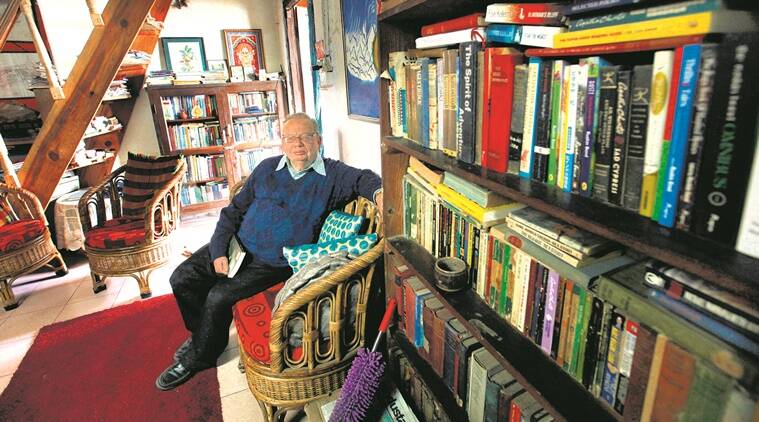
Amidst the books
Many of his works are inspired by his life in the hills. Some notable works include Rain in the Mountains, Blue Umbrella, Roads to Mussoorie, Angry River, Till the Clouds Roll by, The Cherry Tree, and more. “Men can come and go; the mountains remain,” he writes, in his latest book.
Film and television adaptations of Ruskin Bond’s works
His works have been adapted for television and film. The 1978 Bollywood film, Junoon directed by Shyam Benegal and produced by Shashi Kapoor is based on his novel, A Flight of Pigeons, that encompasses an episode of the Indian Rebellion of 1857.
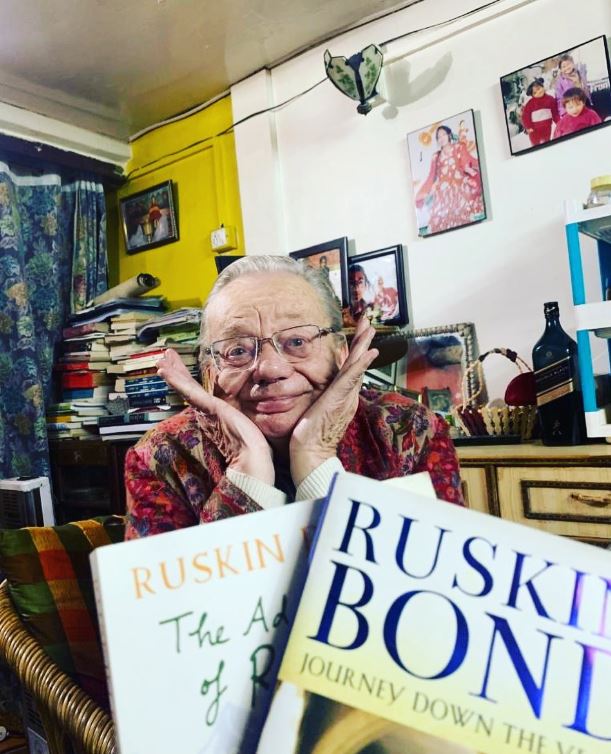
Playfully pretending to be a flower
Stories of Rusty, the character that bears resemblance to him have been adapted into a Doordarshan TV series called Ek Tha Rusty.
His short story, Susanna’s Seven Husbands, has been adapted into a BBC TV-series and also into a film, 7 Khoon Maaf, by Vishal Bhardwaaj in 2011. Ruskin Bond made his maiden silver screen appearance in it as a Bishop. Earlier Bhardwaaj collaborated with him for adaption of his popular children’s novel, The Blue Umbrella which won the National Film Award for best children’s film.
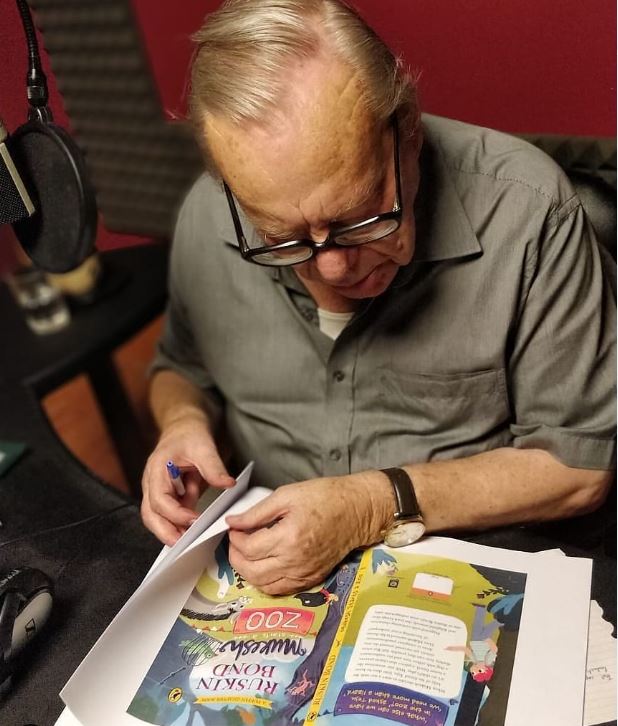
Busy at work
Ruskin Bond’s memoirs that shouldn’t be missed:
- A Song of India
- All the roads lead to Ganga
- Scenes from a Writer’s Life
- With Love from The Hills
- Looking For the Rainbow: My Years with Daddy
Follow Ruskin Bond on LinkedIn, Instagram and Facebook



